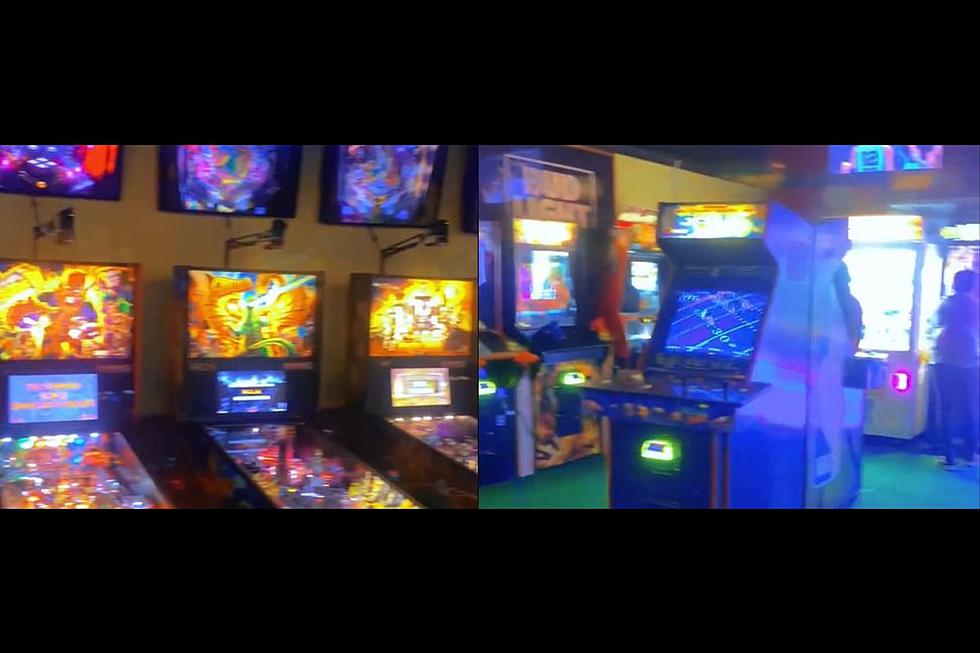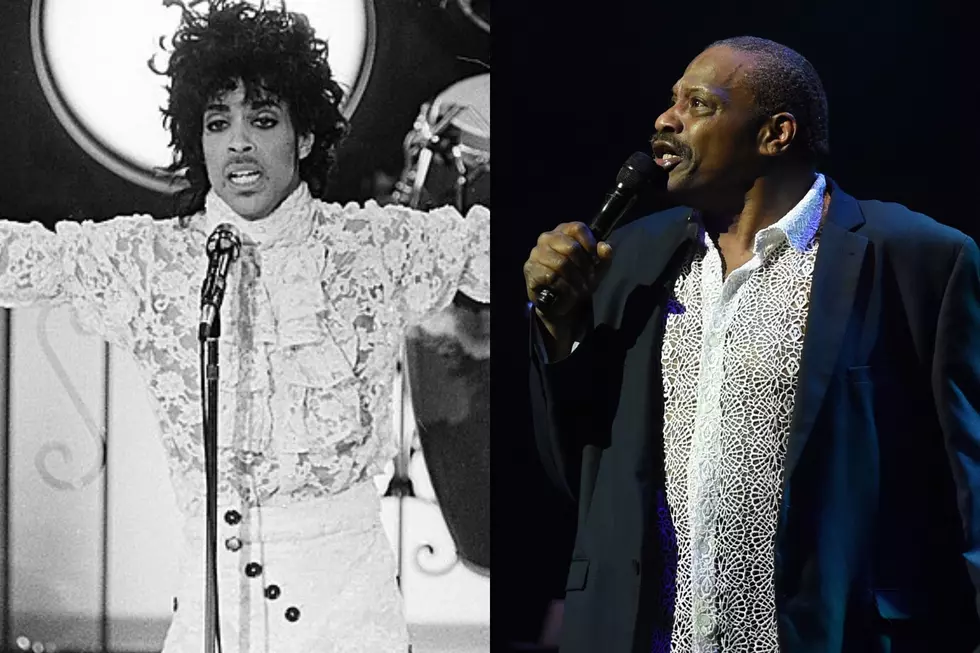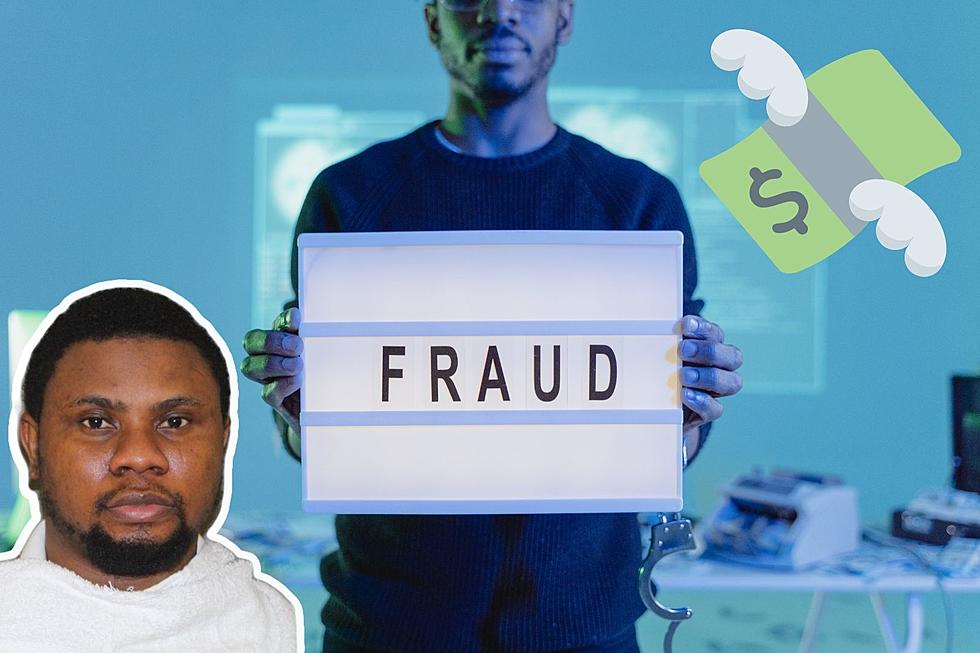
35 Years Ago: Prince Starts to Come Into His Own With Self-Titled Album
Prince began cementing his reputation as a genre-smashing iconoclast with his self-titled sophomore album, released on Oct. 19, 1979. Written, arranged, produced and performed entirely by Prince himself, the project also found him taking more obvious risks lyrically -- pushing sexual boundaries as much as he did musical ones.
The public responded to this nervy combining of Sly Stone's rock-inflected funk, the soaring vulnerability of Earth Wind and Fire's Philip Bailey, and the flinty synth-driven attitude of new wave. 'Prince' would streak to No. 22 on the Billboard charts, while yielding several tracks that became setlist standards into a new millennium.
In some ways, 'Prince' sets the stage for everything that would follow in his catalog. The hopeless romantic heard on his 1978 debut, 'For You,' was largely absent. In his place, a quickly maturing artist displaying a newfound aggression. "What's missing from pop music is danger," Prince told the Guardian. "There's no excitement and mystery -- people sneaking out and going to these forbidden concerts by Elvis Presley or Jimi Hendrix."
Prince rekindled that with a varied set that touched on sexual tension ('Bambi' and 'Why You Wanna Treat Me So Bad?' a No. 1 R&B smash), direct eroticism ('When We're Dancing Close and Slow,' 'It's Gonna Be Lonely') and dark obsessions ('I Feel For You,' later a hit for Chaka Khan; and 'I Wanna Be Your Lover,' a chart-topping R&B hit that crossed over to go No. 11 on the pop charts) -- all of it delivered with a sparse instrumentation that only underscored a growing narrative confidence.
That he'd found even that measure of success, as someone only just into his 20s, was a testament to Prince's prodigious talent -- and, perhaps more particularly, his limitless gumption. His relative youth perhaps contextualizes the often-bashful nature of his debut for Warner Bros. Still, when 'For You' failed to live up to expectations, only producing a minor hit in 'Soft and Wet' (which sounds far more candid than it actually was), Prince didn't fall back. Instead, he charged ahead, mixing and matching styles and approaches, the holy and the profane, races and creeds.
The funky darkness of 'Sexy Dancer' stands apart from anything Prince had yet done. Then there's the crunchy rock of 'Bambi,' the country-influenced feel of 'Still Waiting' and the very adult honesty of 'It's Gonna Be Lonely.' And for all of his personal idiosyncrasies -- many of which were only just now coming into the public consciousness -- Prince was writing from a very real, grounded place.
That layered approach, he says, traces back to his up-bringing in the remote, but yet still nurturing city of Minneapolis. "I guess if there's a concept, it's freedom -- personal freedom -- and the fact that we all have to do what we want to do," Prince said of his music, in an early-'80s talk with People. "I think I say exactly the way it is. I don't particularly think what I sing about is so controversial. My albums deal with being loved and accepted. They deal with war. They deal with sex."
On the latter point, though, Prince pointedly added: "My songs are more about love than they are about sex," as he told Rolling Stone in 1983. "I don't consider myself a great poet, or interpreter a la Moses. I just know I'm here to say what's on my mind, and I'm in a position where I can do that."
The hit songs from 'Prince' bubbled far enough up the charts to earn him a featured spot on the Jan. 26, 1980 edition of Dick Clark's 'American Bandstand,' though, and that's where things got weird. Clark, as was his routine, tried to engage Prince in some between-song banter on the program, only to be met with a response that was, at best, stand-offish. At worst, it was criticized as bizarre.
Asked how many instruments he played, Prince would only say: "Thousands." Asked how long it had been since he produced his first demos, Prince simply held up four fingers. In 1995, the late Clark admitted that, over a career that stretched back to the dawn of rock, this was one of his most difficult broadcast moments -- "and I've done 10,000 musician interviews."
Perhaps appropriately, Clark came to understand that Prince had two sides personally, too. As outsized as he would be on vinyl, it was a different story in person. "That's the nature of the man," Clark told the Star-Tribune. "He's an extraordinary performer and not a particularly verbose one in public conversation. Though once you're off-camera, he's like everybody else -- very normal."
By then, Prince had constructed his first backing band, and it mirrored his forward-thinking musical world view with a mixed-gender, multi-racial lineup that echoed one of his early influences, the Family Stone band. Included were Andre Cymone, a childhood friend, on bass; Dez Dickerson on guitar; Gayle Chapman and Dr. Fink on keyboards; and Bobby Z. on drums. (Dickerson, Fink and Z would continue with Prince into his biggest hitmaking years, as members of the Revolution.)
"There was a lot of pressure from my ex-buddies in other bands not to have white members in the band," Prince told Rolling Stone in '83. "But I always wanted a band that was black and white. Half the musicians I knew only listened to one type of music. That wasn't good enough for me."
Besides, that mirrored his own life. "I grew up on the borderline," Prince, the son of a half African-American father and an Italian mother, told Rolling Stone two years earlier. "I had a bunch of white friends, and I had a bunch of black friends. I never grew up in any one particular culture. We basically got all the new music and dances three months late, so I just decided that I was gonna do my own thing. The white radio stations were mostly country, and the one black radio station was really boring to me. For that matter, I didn't really have a record player when I was growing up, and I never got a chance to check out Hendrix and the rest of them because they were dead by the time I was really getting serious. I didn't even start playing guitar until 1974."
Clearly, Prince caught up -- and quickly. He'd recorded 'Prince' in just a few weeks, after laboring tirelessly over 'For You' -- a project that ended up costing Prince twice his initial label advance. Still, he hadn't quite found his voice yet. There remained some similarities in feel. For instance, 'Why You Wanna Treat Me So Bad?' bears more than a passing resemblance to 'I'm Yours' from his debut. Then there was the band's first shows, in January of 1979. Execs from Warner deemed them unready, at least for now, to mount a national tour.
Such were the nature of Prince's burgeoning experiments. He simply hadn't found the right recipe just yet. But the pot was beginning to boil.
Prince would go on to open for Rick James' Fire It Up tour in 1980, where their music would earn the new tag "punk funk," even as 'Prince' eventually earned platinum-selling status. By 1981, Prince was in the midst of a streak of such successes that would continue in an almost unbroken line into the early '90s.
More From 107-3 KISS-FM










